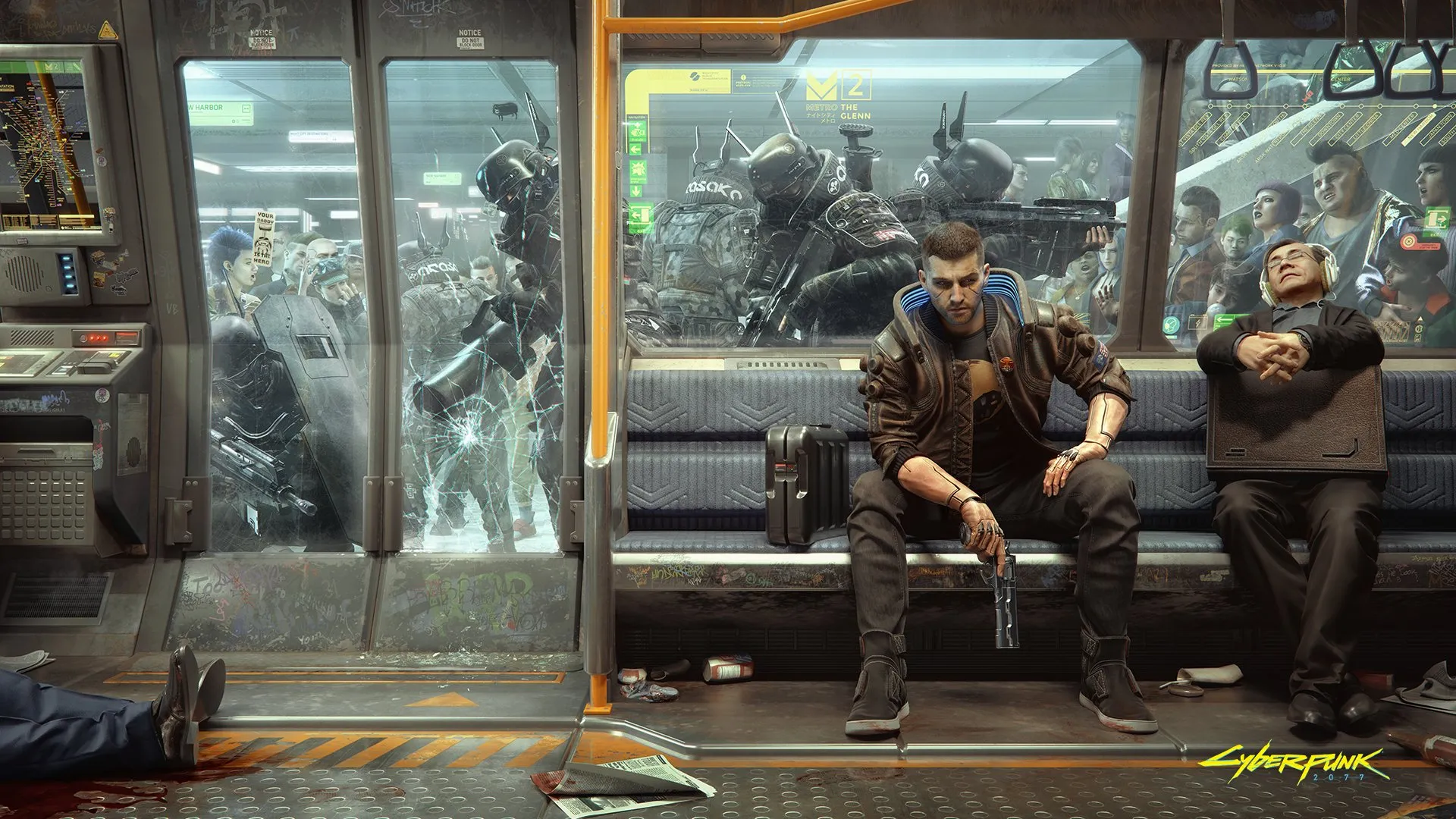BetaHub Blog
How Player Feedback Shapes Game Development: Insights, Challenges, and Success Stories
March 19, 2025
Ever rage-quit a game because of a broken mechanic, an unbalanced feature, or an update that just didn’t sit right? You’re not alone. But the good news? Developers are listening—at least, the smart ones are. Player feedback has become the backbone of modern game development, shaping updates, fixing issues, and even reviving games that seemed doomed (No Man’s Sky, anyone?).
In this article, we’ll dive into why player feedback matters, how it’s collected, and how it influences game design. We’ll also highlight expert opinions, case studies, and the challenges of balancing developer vision with community input.
Why Player Feedback Matters

Player feedback isn’t just about fixing bugs—it’s about refining the entire gaming experience. Developers use feedback to:
- Improve gameplay mechanics – Balancing characters, tweaking controls, and refining game difficulty.
- Increase player retention – Games that evolve based on feedback keep players engaged longer.
- Boost community trust – Players are more loyal when they feel heard.
A study from MoldStud found that incorporating player feedback can increase player retention by 30%, with 63% of players more likely to recommend a game when developers respond to suggestions.
One standout example is No Man’s Sky. Initially criticized for lacking promised features, the developers at Hello Games used player feedback to overhaul the game. Years later, it’s a fan-favorite, proving that listening to players can turn a game around.
How Developers Collect Feedback
Developers gather player feedback through multiple channels, including:
- Beta testing – Closed and open betas allow developers to test mechanics with real players.
- Surveys and polls – Direct questions help gauge player opinions on game balance and features.
- In-game analytics – Heatmaps, completion rates, and player behavior data highlight problem areas.
- Community engagement – Forums, Discord, Reddit, and social media offer real-time player discussions.
- Bug reporting and project management – Various tools serve different purposes:
- Generic bug tracking: Jira, Bugzilla, and Mantis for comprehensive issue tracking
- Game-specific project management: Codecks for game development workflow
- Specialized feedback platforms: BetaHub for game-specific feedback collection and analysis
- Version control integration: GitHub Issues and GitLab for code-related feedback
Laura Beukema, game designer at Filament Games, highlights playtesting as a crucial tool, stating:
“User feedback and playtesting are essential to determine if a game is fun and effective, as you can’t know until someone else plays it.”
From Feedback to Game Updates
Once feedback is collected, developers must decide what to act on and what to ignore. Not every request makes it into the final product—sometimes for good reason.
Step 1: Identifying Valuable Feedback
- Common complaints – If thousands of players report the same issue, it’s a priority.
- Impact on gameplay – Minor suggestions are less urgent than game-breaking bugs.
- Feasibility – Some changes require too much development time or don’t align with the game’s vision.
Step 2: Implementation Strategies
- Quick fixes (hotfixes and patches) – Urgent issues like exploits or broken mechanics.
- Balance adjustments – Tweaking damage numbers, XP rates, or game difficulty.
- Major updates & expansions – Long-term improvements based on trends in player feedback.
Case Study: Cyberpunk 2077’s Redemption Arc

Cyberpunk 2077’s journey from a troubled launch to a celebrated comeback stands as one of gaming’s most remarkable turnaround stories. Let’s break down how CD Projekt Red transformed their ambitious project through consistent attention to player feedback:
Launch Issues (December 2020):
- Console Performance Crisis: Severe frame rate drops and poor graphics rendering on PlayStation 4 and Xbox One made the game nearly unplayable
- Technical Problems: Widespread bugs and crashes across all platforms disrupted the gaming experience
- Missing Features: Several promised features from pre-launch marketing were absent or underdeveloped
- PlayStation Store Removal: In an unprecedented move, Sony removed the game from their store on December 17, 2020, and initiated a refund program
The Turnaround Journey:
- Crisis Management (Early 2021):
- Rapid deployment of critical hotfixes for game-breaking bugs
- Focused performance optimization patches for last-gen consoles
- Implementation of a comprehensive refund program
- Establishment of transparent communication channels with the community
- Regular progress updates and roadmap sharing
- Foundation Rebuilding (2022):
- Launch of next-gen versions for PS5 and Xbox Series X/S with Patch 1.5
- Significant improvements to driving mechanics and vehicle handling
- Enhanced crowd behavior and NPC interactions
- Stability improvements across all platforms
- Reintroduction to PlayStation Store with much-improved performance
- Complete Overhaul (2023 - Update 2.0 & Phantom Liberty):
- Combat Systems:
- Redesigned skill trees for more meaningful progression
- Revamped cyberware system with deeper customization
- Refined melee combat for better responsiveness
- Introduction of vehicle combat mechanics
- World Interaction:
- Implementation of dynamic police system with car chases
- Addition of functioning metro system for city exploration
- Enhanced NPC interactions and crowd behavior
- Improved world events and side activities
- Combat Systems:
The Impact: By early 2024, Cyberpunk 2077 had achieved what many thought impossible:
- Consistently high player counts on Steam
- Overwhelmingly positive recent reviews
- Restored trust in CD Projekt Red’s commitment to their games
- Set a new standard for post-launch game rehabilitation
This transformation wasn’t just about fixing bugs—it was about fulfilling the original vision for the game through careful attention to player feedback and unwavering dedication to improvement. The game’s journey from controversy to acclaim demonstrates how effective player feedback implementation can resurrect even the most troubled releases.
The Fine Line: Developer Vision vs. Player Demands
While feedback is invaluable, it’s not always wise to give players everything they ask for. Developers must balance player desires with:
- Game identity – Not every suggestion fits the original vision.
- Competitive integrity – Some requests (e.g., “buff my favorite character”) could break the game’s balance.
- Resource constraints – Developers must prioritize changes that make the biggest impact.
Bruce Phillips, user research expert at Microsoft Game Studios, warns against overloading players with feedback-driven mechanics, stating:
“Traditional tutorials are becoming less effective. Instead, feedback should focus on effort and strategy to keep players engaged.”
Games That Thrived on Player Feedback
| Game | Initial Challenge | Community Feedback | Developer Response | Impact |
|---|---|---|---|---|
| Minecraft | Limited building options and mechanics | Community-created mods showed demand for more complex systems | Incorporated popular mod features officially (pistons, horses) and added extensive redstone mechanics | Created one of the most flexible and creative building systems in gaming |
| Final Fantasy XIV | Failed 2010 launch with poor gameplay and systems | Overwhelming negative feedback about core game systems | Complete game rebuild (A Realm Reborn) based on player suggestions | Transformed into one of the most successful MMOs with 10+ years of growth |
| No Man’s Sky | Missing promised features at launch | Players detailed specific missing features and desired improvements | 20+ major free updates adding multiplayer, base building, and VR support | Became a benchmark for game redemption stories |
| Deep Rock Galactic | Early Access with basic gameplay loop | Active Discord community providing detailed feedback | Regular updates incorporating community suggestions and memes into the game | Built one of gaming’s most positive communities |
| Hades | Early Access with limited content | Detailed player feedback on combat feel and story progression | Iterative development with constant community input | Won multiple Game of the Year awards |
Final Thoughts: The Future of Player Feedback
As gaming evolves, feedback systems are becoming more sophisticated and integral to the development process. Modern tools powered by AI can analyze player behavior patterns, predict potential issues, and help developers make more informed decisions. Live-service games are particularly benefiting from this evolution, with real-time analytics enabling rapid response to community needs.
The future of game development lies in the balance between innovation and community engagement. Successful developers will be those who can:
- Listen actively to their community while maintaining their creative vision
- Analyze feedback efficiently using modern tools and methodologies
- Respond thoughtfully with meaningful updates and improvements
- Build trust through transparent communication
What You Can Do as a Player
- Use official feedback channels (Discord, forums, bug trackers)
- Be specific—describe what’s wrong, not just “this sucks”
- Offer solutions or examples from other games
- Participate in beta tests and early access programs
- Stay constructive and patient—good changes take time
The gaming industry’s future is being shaped by this dialogue between developers and players. Your voice matters—make it count.
Further Reading & Sources
- The Role of Player Feedback in Video Game Design – How feedback improves player engagement and retention.
- Why Player Feedback Is the Key to Game Development Success – The impact of feedback on game updates and long-term success.
- Game-Based Learning and the Role of Feedback: A Case Study – Research on feedback’s effect on learning and motivation in games.
- Staying Power: Rethinking Feedback to Keep Players in the Game – A deep dive into designing feedback to enhance player engagement.
- Player Feedback: What to Ask in Game Development – Insights on structured feedback collection in game testing.
- How Does Player Feedback Influence Game Development? – The role of analytics and direct player input in shaping games.
Join for free today
Supercharge your team with the best bug tracking and player feedback tools. No credit card required, forever free.
Our Mission
At BetaHub, we empower game developers and communities with an engaging platform for bug submission. We foster collaboration, enhance gaming experiences, and speed up development. BetaHub connects developers, testers, and players, making everyone feel valued. Shape the future of gaming with us, one bug report at a time.

2026 © Upsoft sp. z o.o.
